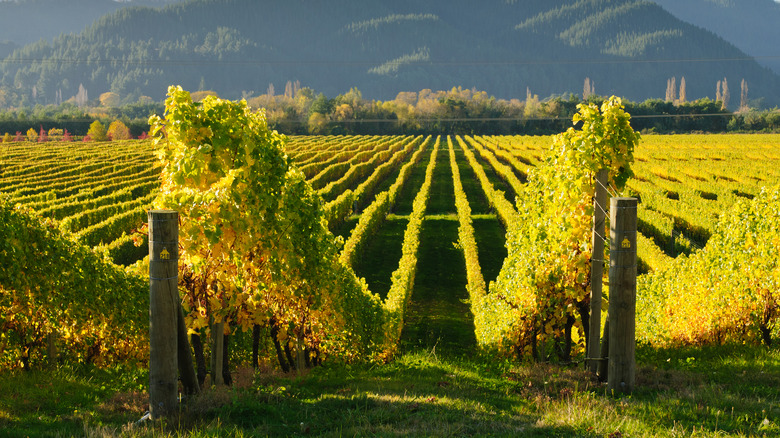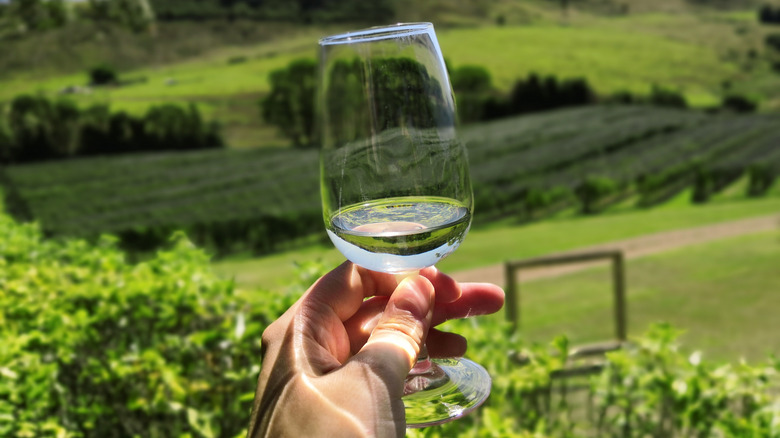New Zealand's Secret To Sustainable Wines
Have you ever thought about the environmental impact of your evening glass of wine? As concerns about climate change become ever-more urgent, it's important that we do. According to Decanter, like any other industry, much of the making and selling of wine today involves agribusiness, global transit, and large-scale manufacturing — all of which result in adverse effects on the environment.
Specifically, when it comes to wine, water usage and carbon emissions are two major concerns. Per Decanter, the majority of wine's carbon output comes from inefficiencies in packaging and global distribution. Increased water use is also a concern, as vineyards in certain areas (like California, per NPR) will continue to face worsening drought conditions over time.
With all of these issues in mind, New Zealand's wine industry has taken dramatic steps to make its practices more sustainable — and, with the help of its Sustainable Winegrowing New Zealand (SWNZ) certification program, the island nation has yielded remarkable results (via New Zealand Wine).
How does SWNZ certification help make wine more sustainable?
According to the 2022 New Zealand Winegrowers Sustainability Report, the goal of the SWNZ certification program is to implement practices that will make winemaking viable for future generations.
The program, which began in 1995, requires that participants receive on-site audits, document any chemicals applied to vineyards, and submit information annually. Per the report, 96% of the country's vineyards are now certified as sustainable by SWNZ.
New Zealand Wine (NZW), the organization behind the SWNZ program, highlighted several measures — relating to energy consumption, water use, soil quality, waste, plant health, and labor conditions — taken by members to achieve these sustainability goals. 55% of wineries, for example, are currently packaging their product with lightweight glass bottles to make distribution more energy-efficient. Meanwhile, 49% of wineries are using recovered and recycled water and 99% of the vineyards use non-chemical pest- and disease-management strategies.
While the country has seen success with its wine sustainability program, the mission is far from over: According to the report, NZW aims to be carbon neutral and produce zero landfill waste by 2050.

